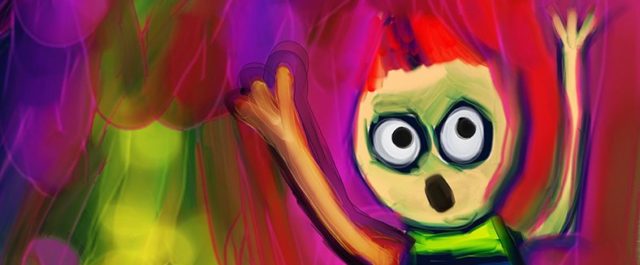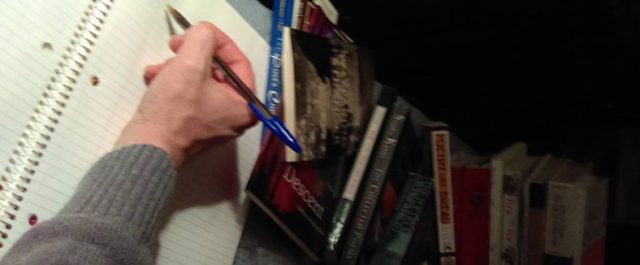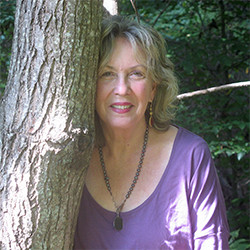Walter Cummins
Does it make any difference to readers whether a work of fiction—particularly literary fiction—was written by a person or by a robot? Much genre fiction is inherently formulaic, variations on basic patterns that fans of the specific genre expect and want. In fact, they would most likely be disappointed, if not disturbed, by unusual shifts from the predictable.
One successful romance writer, Lori Devoti, lists five scenes every such novel should have: 1) the meeting of the couple that ends with some conflict, 2) their awareness of what they share, still ending with conflict, 3) their physical attraction and yet more conflict, 4) dramatization of their emotional commitment, and 5) a sacrifice for love that outweighs any conflicts. “So, if it’s a formula,” Devoti claims, “so is life.”
A writer of literary fiction would disagree, most likely sharing Tolstoy’s, “All happy families are alike; each unhappy family is unhappy in its own way.” It may be that even happy families differ, but literary fiction is not about them, unless it reveals the unease beneath the surface.
Could a computer programs write romance novels? They already have produced acceptable news items, business reports, and similar pieces. Such outcomes involve entering concrete information, like the score of a football game and the earnings of a corporation, and processing them through a fixed organizational structure. A romance novel that emulates a standard development pattern must offer new information such as the characters’ names and backstories, where they live, the specific nature of their conflicts, etc. Can such details be incorporated into a program? Probably, eventually, because they are just variations on the expected—different scores, different earnings, different conflicts. Good literary fiction, in contrast, lacks fixed patterns and predetermined expectations.
Writing in Business Insider in late 2014, Joshua Barrie, a UK tech reporter, claims, “Computers are writing novels — and getting better at it.” And he wonders, “if the creative professions are safer than the administrative or processing professions” from the progress of artificial intelligence (AI). Still, how good must a computer-generated novel be to give nightmares to the thousands of would-be and published story writers and novelists?
Alan Turning, Barrie reports, back in 1950 already came up with a measure for literature with a variation of his famous Turing Test. He posits two stages, a soft test in which human readers can’t tell it’s not human generated, and a hard test in which human readers not only can’t tell it’s not human generated, but will actually purchase it.
The “breakout hit” computer-written novel of 2013, Nick Montfort’s World Clock, failed the test of getting Barrie to shell out pounds and pence for a copy. The algorithms programmed by Montfort, a digital media professor at MIT, turned out passages such as these:
It is now exactly 05:00 in Samarkand. In some ramshackle dwelling a person who is called Gang, who is on the small side, reads an entirely made-up word on a box of breakfast cereal. He turns entirely around.
It is now right about 18:01 in Matamoros, In some dim yet decent structure a man named Tao, who is no larger or smaller than one would expect, reads a tiny numeric code from a recipe clipping. He smiles a tiny smile.
And several more such paragraphs. The pattern is clear. Time and place, what kind of building, character name, character size, something read, a gesture made. The limitations of the tales of Gang and Tao and others might give literary fiction writers sighs of relief.
A few years before, in 2008, Russia’s SPb publishing company shipped bookstores True Love, a 320-page work created by IT professionals to retell Tolstoi’s Anna Karenina in the style of Haruki Murakami. Here’s a representative passage: “Kitty couldn’t fall asleep for a long time. Her nerves were strained as two tight strings, and even a glass of hot wine, that Vronsky made her drink, did not help her. Lying in bed she kept going over and over that monstrous scene at the meadow.”
Such sentences emulate familiar story telling, but True Love can be considered a sport. The Tolstoi original already exists, and Murakami’s stylistic tics can be broken down into 0s and 1s. Essentially, with the plot a given and the presentational method predetermined, that novel is a merging of two sets of knowns rather than a creation of something new.
Since both True Love and World Clock, however, the Google AI program Alpha Go defeated the world’s champion Go player several times. Apparently, that was a huge leap in harnessing computer potential and a form of creative game playing.
The game of Go is apparently exponentially more complex than chess. AI specialists consider the recent achievement of Alpha Go much more significant than IBM’s Watson’s groundbreaking defeat of chess master Kasparov in 1997. A computational Everest has been climbed because the number of the number of possible games of Go far exceeds the number of atoms in the observable universe and more than a googol times larger than chess.
So many possibilities, so many choices. I’m reminded of a bit of wisdom offered by George P. Elliott (Among the Dangs, Parktilden Village), who explained the creative challenge: “What makes fiction writing so difficult are all the decisions the writer faces.” That’s seen in every word choice, in every arrangement of syntax, in every character detail, in every item of backstory, in every transition, in every step of plot; in short, in everything.
If Alpha Go can master the challenge of more than all the atoms, could an equivalent AI program first master romance novels and then literary fiction? Could mastering an extraordinarily complex game translate into mastering an extraordinarily complex creative task? Is it not possible that fiction writers will go the way of assembly line welders before, say, 2020, replaced not by robots but by highly inventive algorithms? Artificial intelligence has already outperformed human abilities such as making medical diagnoses that outperform physicians and allowing cars that drive themselves more safely than people. What about a computer program that turns out literary fiction?
Recently I came across James Salter’s The Art of Fiction, a brief book compiling three lectures he gave as the first Kapnick Foundation Distinguished Writer-in-Residency at the University of Virginia. Salter is nothing if not a writer of literary novels and short stories, much praised for the lyric precision of his prose. In the lectures he discusses how he became a writer, how he wrote, and how he learned from other writers.
Most significant to me was his sense of the standards for good writing and how hard it is to meet those standards. He notes that Gustav Flaubert wrote 4,500 pages of drafts for what became a 300-page masterpiece, Madame Bovary, endlessly revising and at times producing only a page a week in search of le mot juste.
Salter emphasizes the importance of the sentence, how an author’s distinct voice, his or her way of telling, comes though in sequences of words that lead a sentence “to bloom in the reader’s mind.” He cites Isaac Babel, who said, “…there was no iron that could piece the human heart with as much force as a period put in just the right place.”
Salter echoes George P. Elliott when he says writing a novel is a long process because it’s not possible to hold all the details in your head. “You have to keep track of many things, even apart from who is where and what has happened,” he explains. “Inevitably there are notes tacked to the wall or taped to an outline.” Today such notes may be off in a corner of a computer screen. The main thing, Salter emphasizes, is organizing and finding an order for all those details.
Throughout all the time it takes to write a novel, writing is not confined to a specific time or a specific place. “You do it elsewhere,” Salter explains, “carrying the book with you. The book is your companion, you have it in your mind all the times, running through it, alert for links to it.”
Having written a bit of fiction myself, novels once but primarily short stories, and having many fiction writer friends who talk about their process, I can’t but agree with all that Salter says about writing fiction.
But back to computer-written books. Phil Parker, a chaired professor of marketing at Insead: The Business School for the World, reports that once two or three years have been devoted to developing the right algorithms, a book can be generated in twenty minutes. He claims, going one step beyond Lori Devoti:
We created a system which we think mimics the human mind… The truth is, if you step back far enough, all of literature is highly formulaic, not just romance novels. Some of the genres are so formulaic that the publishers of those genres tell the potential writers how to write the books themselves.
I can’t help by compare that twenty-minute span with the full decade several of my novelist friends devoted to a single work, resulting in grants, awards, and enthusiastic reviews. But I also wonder how that world champion Go player must feel after multiple defeats by Alpha Go. And then I wonder about sentences that pierce the human heart.
Even if a future algorithm actually produces fiction that passes the Turning Tests of convincing readers and finding buyers, even going beyond that to win National Book Awards and Man Booker Prizes, I suspect the James Salters of the world won’t stop writing novels and stories because for them the process, as long and as demanding as it may be, matters much more than the product. Can an algorithm enjoy the satisfaction of achieving a sentence that blooms or a single word that feels exactly right?
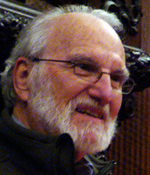 Walter Cummins has published six short story collections—Witness, Where We Live, Local Music, The End of the Circle, The Lost Ones, Habitat: stories of bent realism. More than 100 of his stories, as well as memoirs, essays, and reviews, have appeared in magazines, in book collections, and on the Web. With Thomas E. Kennedy, he is co-publisher of Serving House Books, an outlet for novels, memoirs, and story, poetry, and essay collections. For more than twenty years, he was editor of The Literary Review. He teaches in the MFA in Creative Writing program at Fairleigh Dickinson University.
Walter Cummins has published six short story collections—Witness, Where We Live, Local Music, The End of the Circle, The Lost Ones, Habitat: stories of bent realism. More than 100 of his stories, as well as memoirs, essays, and reviews, have appeared in magazines, in book collections, and on the Web. With Thomas E. Kennedy, he is co-publisher of Serving House Books, an outlet for novels, memoirs, and story, poetry, and essay collections. For more than twenty years, he was editor of The Literary Review. He teaches in the MFA in Creative Writing program at Fairleigh Dickinson University.
Sources:
Joshua Barrie. “Computers Are Writing Novels: Read a Few Samples Here.” Business Insider November 27, 2014. http://www.businessinsider.com/novels-written-by-computers-2014-11?r=UK&IR=T
Lori Devoti, “Five Scenes Every Romance Novel Needs.” The How to Write Shop July 30, 2012. http://howtowriteshop.loridevoti.com/2012/07/five-scenes-every-romance-novel-needs/
Google Official Blog. “AlphaGo: using machine learning to master the ancient game of Go.”
January 27, 2016. https://googleblog.blogspot.com/2016/01/alphago-machine-learning-game-go.html
Adam Popescu. “Why Write Your Own Book When an Algorithm Can Do It For You.” Read Write January 15, 2013.http://readwrite.com/2013/01/15/why-write-your-own-book-when-an-algorithm-can-do-it-for-you/
James Salter. The Art of Fiction. University of Virginia Press, 2016.
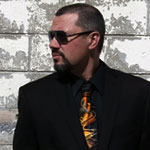 Matthew McEver is a Lecturer in the Department of English at the University of North Georgia and holds the MFA in Creative Writing from Converse College in South Carolina.
Matthew McEver is a Lecturer in the Department of English at the University of North Georgia and holds the MFA in Creative Writing from Converse College in South Carolina.




